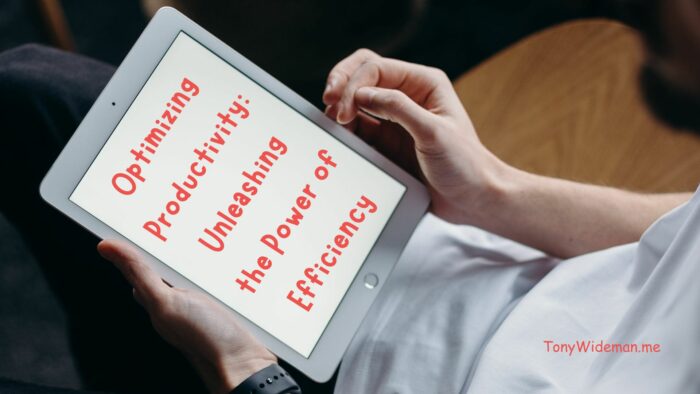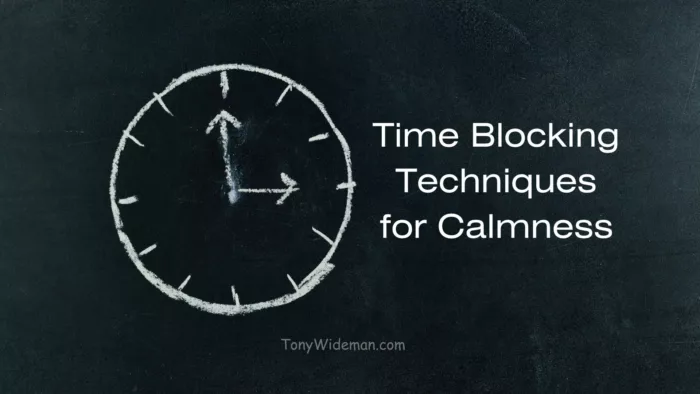Why You Don’t Need A Morning Routine For Success
Morning routines have been heralded as the key to productivity and success in recent years. However, the notion that a rigid morning routine is essential may be more myth than fact.
We argue that flexibility and personalization are far more critical components of a successful start to the day.
Introduction
I will kick things off by debunking a popular belief: To succeed, you must rise at dawn and follow a strict morning routine.
While many swear by their early-morning rituals, it’s far from a one-size-fits-all formula for achievement.
You’ll learn about the broad range of personal habits maintained by successful individuals throughout history. Consider artists like Frida Kahlo and writers like Franz Kafka, who thrived on unconventional schedules.
Even in the contemporary scene, high achievers like Twitter’s Jack Dorsey flaunt unique routines that defy the early bird stereotype.
This isn’t just about cherry-picked examples; research backs up the idea that peak productivity doesn’t always align with the sunrise. Some people perform best in the wee hours of the night, while others hit their stride in the afternoon.
The key takeaway? Success is deeply personal, and mimicking the morning routine of a productivity guru won’t necessarily yield the same results for you.
Don’t worry too much about locking into a sunrise schedule if that’s not your thing. Instead, focus on what works for you. It’s about understanding your rhythms and leveraging them for your benefit. Choose something like Circadian Rhythm that resonates with your natural tendencies rather than fighting against them.
A lot is happening very quickly in our lives, and clinging to the notion that morning routines are the golden ticket to success can be limiting.
Your own experiences and intuition are equally powerful guides. Below, we’ll explore alternative keys to success that don’t rely on an arbitrary time to start your day.
Alternative Keys to Success Beyond Morning Routines
I will level with you: there isn’t a one-size-fits-all key to success. For some, a regimented morning routine might feel like a square peg in a round hole, and that’s perfectly okay.
It’s essential to recognize that consistency and personal well-being are sometimes all you need to stay on track to achieving your aims.
You can constantly adjust your approach, but understanding the importance of adaptability and responsive daily planning can be a game changer. Life is unpredictable, and pivoting in response to the vagaries of your day-to-day existence can do more for your success than the rigidity of a morning ritual.
Don’t worry too much about finding that one perfect habit. Instead, build discipline through habits aligning with your goals and lifestyle.
That is why I choose to set intentions instead of goals. Failing anywhere on the journey towards meeting a goal can dampen your day. Failing anywhere on the journey towards succeeding an intention means you try again the next day.
Choosing something that resonates with you will likely be more sustainable and enjoyable, which are critical ingredients for long-term success.
A lot is happening quickly, so it’s indispensable to process changes rapidly and adjust accordingly. You’ll often find a strong sense of self-awareness and reflection at the core of success.
These elements allow you to understand what works for you, help you grow personally, and build a meaningful career or business.
Creating Your Path: Tailored Strategies for Success
So you’ve heard the buzz about having a killer morning routine, right? And maybe you’ve felt a twinge of guilt for not jumping on that 5 AM bandwagon.
But guess what? That’s okay. Crafting a personal success strategy tailored to your life can lead to more satisfaction and achievement than forcing yourself into a one-size-fits-all mold.
Understanding what makes you tick is crucial. Maybe you’re a night owl, and your brain doesn’t wake up until noon. Or perhaps you juggle multiple roles, and your peak time is whenever you can snatch a quiet moment. Identifying the times and activities fueling your productivity, energy, and joy is critical.
You’re going to discover that successful people often break the mold. They aren’t all early birds; many thrive on variety and spontaneity.
A rigid schedule might work for some, but the beauty of success is that it comes in many forms. It’s about finding what resonates and gives you the best shot at reaching your goals.
So, how do you get started? It’s simple but not necessarily easy. Begin by paying attention to your daily rhythms and notice when you feel most focused and alive.
Experiment with different routines and ditch what doesn’t serve you. Then, build your daily plan around the practices that benefit your well-being and move you toward your aspirations.
Remember, your first attempt doesn’t need to be your last. You can constantly recalibrate as you learn more about yourself.
Embrace the journey of discovering what makes you perform at your best. Reject the pressure to conform to the mythical ‘ideal’ routine and choose a path that’s uniquely yours.
This is the secret to success—it’s personal, adaptable, and entirely within your power to define. I hope you leave this post feeling empowered to shape your strategies and not be constrained by supposed success templates.
Create a rhythm that fits your life, and watch your version of success unfold beautifully on your terms.
Individual Differences in Productivity
Biological Rhythms and Chronotypes
Human beings have different biological rhythms, also known as chronotypes. Some people are naturally morning larks, while others are night owls.
Expecting everyone to thrive under the same early morning routine ignores these fundamental differences. Forcing a night owl to wake up at 5 AM might lead to sleep deprivation, reduced productivity, and dissatisfaction.
Personal Preferences and Responsibilities
Personal preferences and responsibilities also play a significant role in determining the best routine. Parents, for instance, may need to adapt their mornings around their children’s schedules. Similarly, someone who works late into the night may find that a later start to their day better suits their needs.
The Case for Flexibility
Adapting to Daily Variations
Life is unpredictable, and a rigid routine can quickly become a source of stress rather than a productivity booster. A flexible approach allows individuals to adapt to daily variations, such as unexpected meetings, family emergencies, or changes in personal energy levels.
Emphasizing Well-being Over Routine
Focusing on well-being rather than adhering to a routine can lead to more sustainable productivity. This might include prioritizing adequate sleep, proper nutrition, and mental health practices tailored to individual needs and preferences.
Creating a Personalized Morning Routine
Identify Core Activities
Rather than adopting a pre-packaged routine, individuals should identify meaningful and beneficial activities.
These might include exercise, journaling, reading, or simply enjoying a cup of coffee in peace. The key is to choose activities that set a positive tone for the day.
Flexible Time Blocks
Instead of rigid time slots, consider using flexible time blocks. For example, allocate an hour in the morning for self-care activities but allow the specific activities to vary based on what feels right each day. This approach maintains structure while allowing for adaptability.
Regular Review and Adjustment
A successful routine should evolve. Regularly review and adjust your morning practices to ensure they continue to meet your needs and preferences.
This might involve experimenting with new activities or changing the order of tasks to suit your lifestyle better.
Practical Tips for a Flexible Morning Routine
Prioritize Sleep
Maintain a consistent bedtime to ensure you get enough sleep. Quality sleep is the foundation of a productive day and cannot be sacrificed for a morning routine.
Listen to Your Body
Pay attention to how your body feels each morning. If you’re tired, allow yourself extra rest. If you’re energized, use that momentum to tackle more demanding tasks.
Limit Digital Distractions
Start your day with minimal screen time.
Before diving into emails and social media, engage in activities that promote mindfulness and presence, such as meditation or reading.
Set Intentions, Not Schedules
Set daily intentions rather than strict schedules.
Focus on the outcomes you want to achieve rather than the specific steps. This approach encourages flexibility and reduces stress.
Conclusion: Embrace Personalization Over Perfection
In conclusion, the belief that a rigid morning routine is the key to success is a myth. Flexibility and personalization are far more critical.
We can create a morning routine that supports our productivity and happiness by listening to our bodies, prioritizing well-being, and adapting to daily variations.







